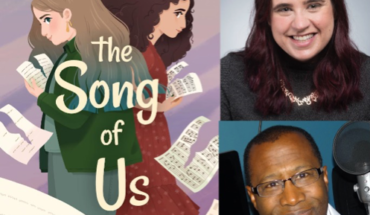Writing marginalized content in a mainstream world is balls. Aside from the extra pitfalls we as such authors have to look out for, aside from the extra attention and reflection and detail such writing demands, we also hit a nerve-wracking question: If I succeed, does that mean I’ve failed?
The theory of our success comes off mutually exclusive, for how can a marginalized writer succeed in the mainstream world of publication if they don’t pander to the mainstream, if they don’t cut out all the marginalized stuff that made them a marginalized writer to begin with?
To be successful would, in theory, mean that we’ve sacrificed our subversiveness, our uniqueness, our individuality. We’ve become Stepford Wives. And we don’t want that. We want to be successful, but we don’t want that.
So from one unpublished worrywart to another, here’re some of the questions I run through my head to keep myself in check.
1. Are you making editorial changes just so the mainstream feels comfortable?
Going out on a limb here, but I’ll bet donuts to dollars that one of the reasons you write the characters you write is because you want to give the mainstream the bird. I mean, that’s kind of the whole point, isn’t it? Our representation as marginalized people is still pretty abysmal and we’re trying to change that.
To write a realistic portrayal of a marginalized protagonist means you’re probably going to be making various parts of the mainstream feel uncomfortable, guilty, or just downright angry. And the difficult irony here is we hand over a manuscript that clearly says, “Fuck you,” while still clasping our hands together and asking, “Love me?”
The houses sell to the mainstream. They’re going to want the mainstream to want to read your book. And the mainstream isn’t going to if you hurt their fee-fees too much. You’re going to get slammed with bad reviews and low sales because, well, ignorant people in large numbers. Popped bubbles do not equal dollars.
So we hit an odd sort of problem when it comes to editing our work. Usually, the rule is that if two or more people have the same constructive criticism, then they’re correct and we need to fix it. Basically, majority wins.
But what happens if you’re writing something not part of the usual mill? You may find yourself with one or more (mainstream) readers who, against the universal rule, aren’t actually giving you good advice. They may be suggesting things that they want for their own consumption and not what would be in the best interest of the story. Even well-intentioned readers sometimes don’t realize they’re doing this.
When you decide to make a change to your work, pay extra special attention to the people behind those suggestions; their identities, their races, their sexual orientations, their income levels, their political stances. This isn’t to say that mainstream people won’t have helpful advice or criticisms to give you. It’s just that they may not be as important as you’ve been led to think. Soak everything up, give every opinion its fair reflection, but always take everything with a grain of salt, look hard on the criticisms, and play in your head every scenario possible that could happen to your characters (and how they’d read) if you implement the suggested changes.
Leave no stone unturned.
Yes. It’s exhausting.
2. Are you educating yourself on writing styles and how to take constructive criticism?
Even when armed with a stellar agent, editor, and publishing house, the responsibility of writing education falls squarely on your shoulders. It’s up to you to know which constructive criticism is meant to improve the book’s structure and which is meant to shut you up. Which’s meant to strengthen your prose and which’s meant to curb your dire messages to the world.
Even the most well-intentioned mainstream editor may not know the difference, their eye for good writing having been so long entangled with a mainstream life.
So read up on writing style as much as you can. And while you’re at it, get a ton of experience receiving constructive criticism so you can tell the difference between your own gut reactions of, “But I don’t wanna!” and “No. That’s actually problematic.”
People may have the best of intentions, but they’re also ultimately coming from their own self-interest. And that includes you.
3. When you’re forced into “comfort” changes, do you attempt to meet in the middle?
If you’re looking to publish something 100% subversive by the houses, you’re going to lose. So get that into your head right now.
However, ask yourself a question: Would you rather have a 100% subversive book that will reach a smaller audience? Or a 68.3% subversive book that will reach a larger audience? Are you looking to connect with marginalized readers, educate the mainstream, or both?
There’s no wrong answer here. All are very important avenues, for every reader we reach is a victory. But make sure you know which path you want and continue aiming for it, for this will make a big difference in how you approach and write your book. Don’t hop back and forth or remain impassive to the question, then wonder why you’re not making headway or why your story seems so muddled.
Personally, I’ve gone the latter route, the “slightly un-subverse myself to reach more people” one. The “educate and resonate” one. And if you’re taking this route, too, it’s important to learn the meaning of compromise. Or, at least, how to get creatively sneaky.
For example, in one of my manuscripts, a queer character was repeatedly asked by beta readers to have what could be summed up as a “shameful reveal.” I’m against this completely, since it’s nothing more than stealing the character’s autonomy for the pitying gaze of the mainstream, for them to snack their popcorn and smile a sad smile before moving on with their own lives, leaving a decimated character in their wake. And some handful of relatable readers besides.
So no. Fuck no. But over time, I did realize that something needed to be done if I wanted a chance at the houses, for the “shameful reveal” demand kept cropping up, for these readers were right, but not right. I needed something that would make the character’s struggles more “believable” to the mainstream, even if such demands are because the mainstream perpetuates these struggles by, well, demanding them. ‘Round and ‘round we go.
So I wrote a reveal, but not a shameful one. It’s a reveal that the character initiates on his own, that he decides to do because he’s exhausted, because he continues to not see the fairness in him hiding. He’s revealed, but keeps all of his autonomy, all of his agency, all of his energy to keep moving forward instead of stopping to pick up the pieces yet again. He reveals himself as a way to rebel.
And lo, the readers were happy. The mainstream ones felt they got what they wanted, and the marginalized ones felt empowered. And damn if the change didn’t end up making the book stronger.
4. Are you holding out for an agent that has a good track record of going to bat for their clients?
Inaccurate synopses and misleading book covers can be devastating for any author, but they take on a particularly toxic role when involving marginalized characters. You don’t want your character of color to be portrayed as nearly white-skinned on the cover. You don’t want the synopsis of your transwoman character to refer to her as “gay,” “he,” or “a woman born a man.” After all of your hard work, gross mainstreaming like this will not only alienate the audience you originally wrote your story for, but potentially create and perpetuate harmful misconceptions to the mainstream readers who pick up your book.
Sadly, publishers nearly always get the last say, and they’re going to sell you out faster than Grandma’s waffles if they think it’s going to bring in more money.
But if you fight to land yourself an agent who will back you up when you flip your shit about the cover photo, you at least have a chance to get it changed before it hits the shelves. It’s incredibly tempting to enthusiastically commit to any Joe Schmoe who wants to sign with you, but remember why you started writing about these characters to begin with. Don’t settle. Hold out.
***
Writing is not an easy or lucrative career. This is especially the case with marginalized writers. If the mainstream folk are having a hard enough time making money with their characters and morals that people lap up like honey, what poor prayer in Hell do the rest of us have?
Yes, this all sucks. Yes, it’s all a labor of love and sweat and tears and blood and thanklessness, of 3am writing sessions after two shifts at work, of emptied bank accounts because what little you saved went to chances of bettering your writing career, of making some miniscule progress that means the world to you while you get egged for it by those it doesn’t.
But isn’t that the nature of any revolution?
So go you. You’ll be alright. Remember that nobody can break your purpose when you keep it so close to your heart. You give a damn, and that will shine through your work.




1 comment